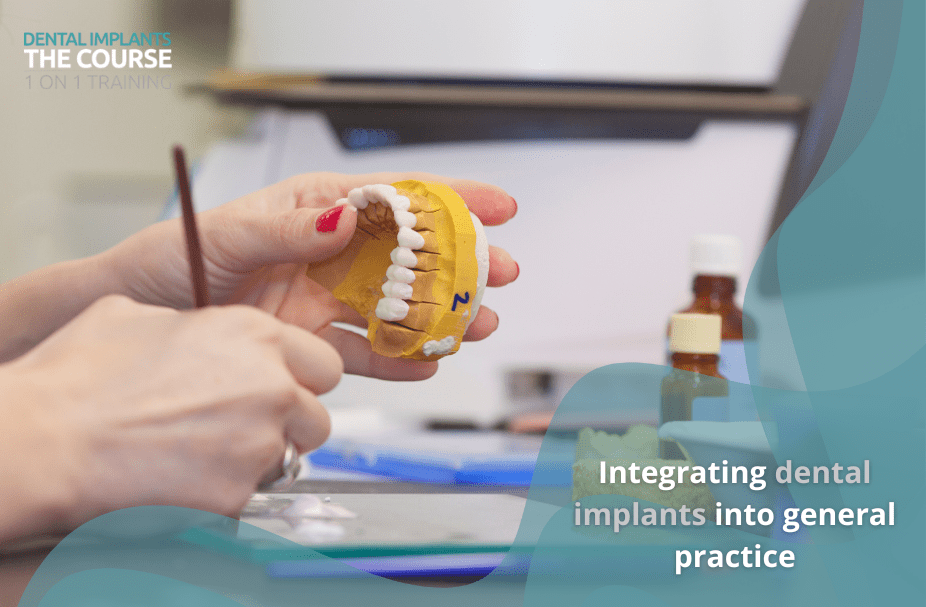
Dental implants, a cutting-edge procedure to replace a missing tooth, have become increasingly popular given their effectiveness and durability. While addressing gum health, cleanings, fillings, extractions, root canals, crowns, and bridges are essential general dentistry services, dental implants can be a new challenge to take up and expand your areas of expertise.
Now, some general practitioner dentists consider integrating dental implants into general practice, although it may be perceived as a potential risk of losing patients. Why is that? When incorporating a more complex treatment, some patients may think your practice will begin specializing only in dental implants. If that’s not the case, and you’d still like to maintain your general practice services, it is important to communicate it correctly, not only for your current patients but also for potential new ones. While abrupt changes may lead to confusion, clarifying that you’ll still provide your already existing general services can help maintain good communication and patient-dentist relationships.
How general dentists can start offering implants? First Steps
This is a question that needs to be answered in order for dentists to make the smoothest transition into the dental implant world. While adding dental implants as a new service can translate as a way to expand your offerings and possibly your practice’s growth, it can be a long and complex process.
But where to begin? Before determining whether you’ll be able to provide this advanced service, there are a few things to consider. For example, if there’s a high level of demand in your area, or how many of your current patients could benefit from this procedure.
Another two key factors that fused are a magic potion for success are preparation and education. Top-notch training for you and your team is a must when it comes to incorporating a new procedure into your practice. You want satisfied patients, a good reputation, and, of course, the most positive outcome possible. To achieve those goals, you must first build a foundation based on knowledge and expertise, through ongoing learning on techniques, materials, and more. Dental journals, mentorships, workshops, seminars, and more educational courses are steps you cannot skip.
Finally, least but not last, investment. Dental implants are a procedure that requires the use of more advanced technologies, including imaging scanners, surgical tools, and, as previously mentioned, investment in education. Keeping your practice as sterile as possible is important in general, but especially when surgical procedures are taking place.
Slow but steady: what it’s like balancing general dentistry and implants
When you’re just starting with dental implants, it is advisable to begin slowly. At first, you should take simple cases that will help you gain both experience and confidence. It is a good way to build your skills without dealing with complications, so your learning process can evolve gradually and steadily. It is strongly recommended that you outsource complex cases when you’re only beginning, or also keep in touch with fellow dental implant professionals.
While being accustomed to providing comprehensive dental care may seem like you can do it all with your eyes closed, keep in mind that adding such an advanced procedure to your practice’s offerings is another responsibility to deal with, and managing time for all of your services is a challenging balance to make.
But fear not – organization and correctly delegating among your qualified team members (after proper training) will be your best allies while giving your first baby steps in dental implants.
While balancing general dentistry and implants, a good way to ensure your core is still in general dentistry is to keep updated on the techniques and advancements, which is key to refreshing your knowledge and ensuring patients that you’re an authentic provider of comprehensive dental care with an advanced specialization in dental implants.
Ready to Take the First Step?
If you’re considering integrating dental implants into your general dentistry practice, the time to start is now. Whether you’re looking for hands-on experience or AO-certified training, we invite you to explore our upcoming courses or contact us for more information. Let’s grow your practice together.
